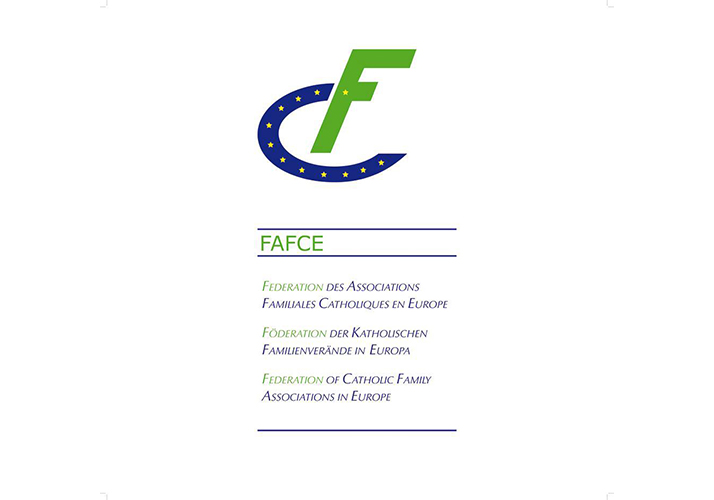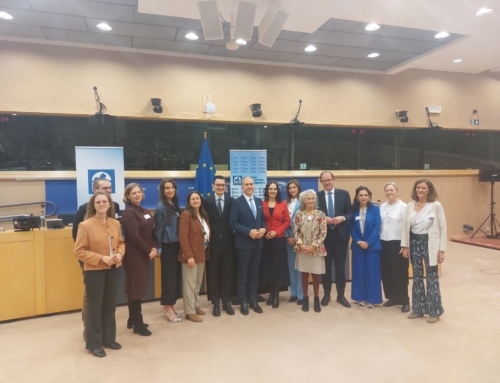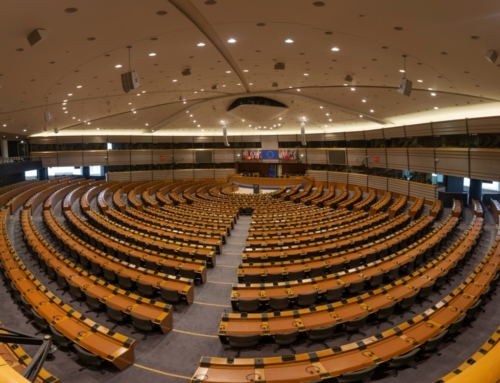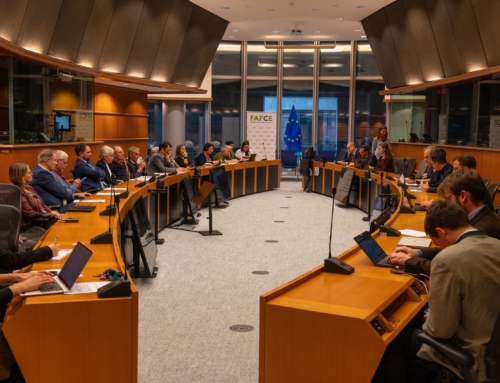Strasbourg, 9 June 2015
Today the European Parliament adopted the Report of the Women’s Rights Committee (FEMM) on the EU strategy for equality between women and men post 2015, originally drafted by Maria Noichl (S&D, Germany). As we stated in our messsage to the Members of the European Parliament before this vote, the adopted text goes clearly beyond the Treaties and breaches the principle of Subsidiarity on very sensitive matters. A breach that is of great concern to citizens across the EU.
This is an initiative resolution with no legal binding consequences for the Member States. Nevertheless, we notice that, since the beginning of the current mandate of the European Parliament, there is a significant increase of this kind of political acts, which tend to impose a certain conflictual vision of the relationships between women and men, rather than striving for the respect of the dignity of all.
The Report on Progress on equality between women and men in the EU in 2013, which was rejected by the past Parliament for the year 2012 in 2014, was adopted on 10 March, asking for a “right” to having “ready access to abortion” (§47). Two days later, the Report on the Annual Report on Human Rights and Democracy in the World 2013 and the European Union’s policy on the matter was also adopted, with an even stronger call for a “right to abortion” (§136), pushing Member States to recognise “same-sex marriages” (§162).
Today, with the Report originally drafted by Ms Noichl, for the first time ever the European Parliament “Recommends that, as the composition and definition of families change over time, family and work legislation be made more comprehensive with regard to (…) LGBT parenting” (§31).These issues do not only belong to the remit of national competence, they are also highly sensitive and there is no common understanding among the 28 Member States: there is on the contrary a growing challenge as regards the social peace on the European continent due to these issues that create a deep divide among citizens and their elected representatives at national and European levels.
Furthermore, are we sure that this means taking into account the best interest of the child, in line with the international conventions which protect the rights of children? Today the European Parliament, amid applauses, promoted once again the “right” to abortion (§52, §68, §72) and also called “on the Commission to encourage Member States to promote (medical) fertility support and to end discrimination in access to fertility treatment and assisted reproduction” (§59), avoiding any reference to children who are deliberately deprived of their biological parents and opening the door to any kind of assisted reproduction, including surrogacy motherhood if one were to follow the logic of “access for all to assisted reproduction”. On Monday, at the end of the preliminary debate, Ms Noichl denied that this text contains any reference to surrogacy, forgetting that surrogacy is a logical consequence of the liberalisation of assisted reproduction. Yes, unfortunately, this report also does include support to surrogacy.
However, something is changing. Members of the European Parliament are not all on the same line, and the vote of today made that clear: there is a strong and growing opposition to this ideological vision, which is far from the everyday life of many women and men. Many of MEPs denounce the fact that reports coming from the FEMM Committee are “periodically manipulated to become in turn the receptacle where merging the interference of one or more lobby with issues of equality between men and women should not interfere” (Daniela Aiuto, EFDD, Italy). Many of them do not want the European Commission to take the place of Member States on matters of sexual and reproductive health (Cf. e.g. the Declaration of vote of Marian Harkin, ALDE, Ireland). Many of them strongly believe in the principle of subsidiarity, as “not every issue in Europe is an issue for Europe“, as stated by Angelika Niebler (EPP, Germany).
The huge number of abstentions (81) and the number of votes against the resolution coming from political groups which strongly supported this report (S&D, Greens/EFA, GUE-NGL, ALDE) reveal that European citizens truly can be represented in Brussels and Strasbourg: nevertheless this demands significant work on culture and a long-standing commitment for a European Union that respects life and family: “On these issues– FAFCE President Antoine Renard declared –there are not right and left wings, as many would like us believe, but different visions crossing all political parties. FAFCE will continue its mission to represent the real interests of European families in Brussels and Strasbourg“.
Contact: Maria Hildingsson, Secretary General
+32 4 70 20 39 18
info@fafce.org






